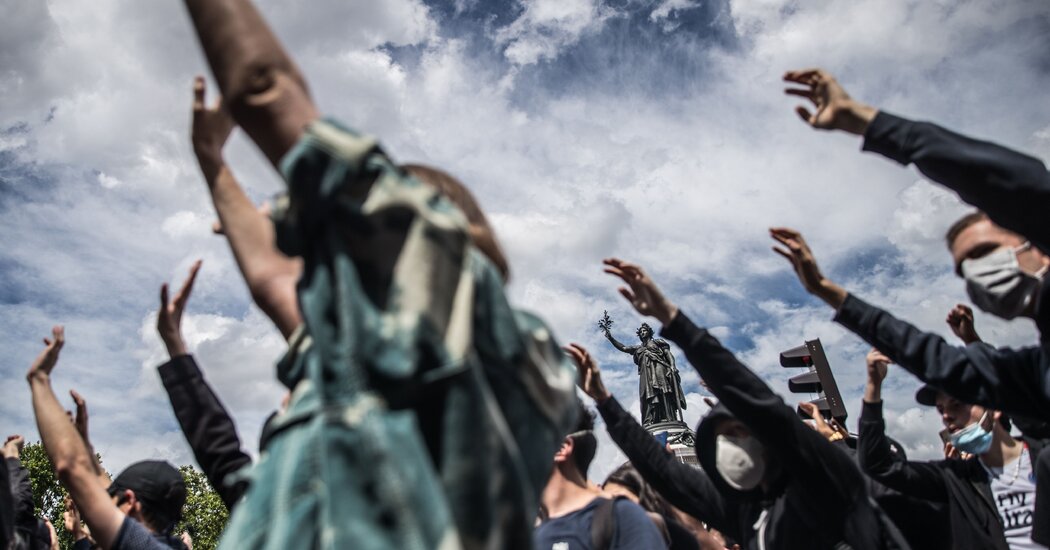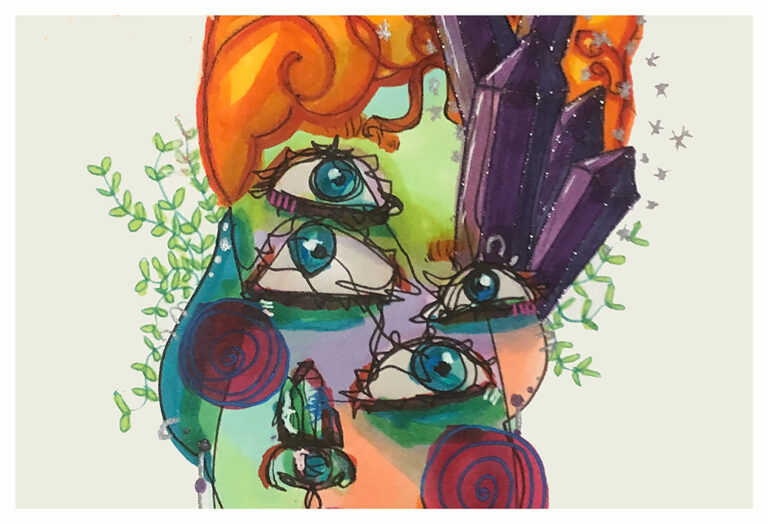
Mr. Macron — who had shown little interest in these matters in the past but has been courting the right ahead of elections next year — jumped in last June, when he blamed universities for encouraging the “ethnicization of the social question’’ — amounting to “breaking the republic in two.’’
“It’s the sign of a small, frightened republic, declining, provincializing, but which in the past and to this day believes in its universal mission and which thus seeks those responsible for its decline,’’ said François Cusset, an expert on American civilization at Paris Nanterre University.
Emboldened by these comments, prominent intellectuals have banded together against what they regard as contamination by the out-of-control woke leftism of American campuses and its attendant cancel culture.
But the emergence of young intellectuals — some Black or Muslim — has fueled the assault on what Mr. Fassin calls the “American boogeyman.
said on Monday he wants to diversify its staff and ban blackface, has been attacked by the far-right leader, Marine Le Pen, but also in Le Monde because, though German, he had worked in Toronto and had “soaked up American culture for 10 years.”
The fierce French debate over a handful of academic disciplines on U.S. campuses may surprise those who have witnessed the gradual decline of American influence in many corners of the world. In some ways, it is a proxy fight over some of the most combustible issues in French society, including national identity and the sharing of power. In a nation where intellectuals still hold sway, the stakes are high.
For Ms. Heinich, last year’s developments came on top of activism that brought foreign disputes over cultural appropriation and blackface to French universities. At the Sorbonne, activists prevented the staging of a play by Aeschylus to protest the wearing of masks and dark makeup by white actors; elsewhere, some well-known speakers were disinvited following student pressure.
Mass protests in France against police violence, inspired by the killing of George Floyd, challenged the official dismissal of race and systemic racism. A #MeToo generation of feminists confronted both male power and older feminists. A widespread crackdown following a series of Islamist attacks raised questions about France’s model of secularism and the integration of immigrants from its former colonies.
Pap Ndiaye, a historian who led efforts to establish Black studies in France, said it was no coincidence that the current wave of anti-American rhetoric began growing just as the first protests against racism and police violence took place last June.
Some saw the reach of American identity politics and social science theories. Some center-right lawmakers pressed for a parliamentary investigation into “ideological excesses’’ at universities and singled out “guilty’’ scholars on Twitter.
French politicians, high-profile intellectuals and journalists are warning that progressive American ideas — specifically on race, gender, post-colonialism — are undermining their society. “There’s a battle to wage against an intellectual matrix from American universities,’’ warned Mr. Macron’s education minister.
A group of 100 prominent scholars wrote an open letter supporting the minister and decrying theories “transferred from North American campuses” in Le Monde.
“It was a series of incidents that was extremely traumatic to our community and that all fell under what is called cancel culture,’’ Ms. Heinich said.
deepened the sense of ineluctable decline of a once-great power.
“That’s what has turned things upside down,’’ he said. “They’re not just the objects we speak of, but they’re also the subjects who are talking.’’
slave-trading and colonial past.
campaign to remove a fresco at France’s National Assembly, which shows two Black figures with fat red lips and bulging eyes. Her public views on race have made her a frequent target on social media, including of one of the lawmakers who pressed for an investigation into “ideological excesses’’ at universities.
The threat? “Certain social science theories entirely imported from the United States,’’ said President Emmanuel Macron.
Three Islamist attacks last fall served as a reminder that terrorism remains a threat in France. They also focused attention on another hot-button field of research: Islamophobia, which examines how hostility toward Islam in France, rooted in its colonial experience in the Muslim world, continues to shape the lives of French Muslims.
The publication this month of a book critical of racial studies by two veteran social scientists, Stéphane Beaud and Gérard Noiriel, fueled criticism from younger scholars — and has received extensive news coverage. Mr. Noiriel has said that race had become a “bulldozer’’ crushing other subjects, adding, in an email, that its academic research in France was questionable because race is not recognized by the government and merely “subjective data.’’
accused universities, under American influence, of being complicit with terrorists by providing the intellectual justification behind their acts.
PARIS — The threat is said to be existential. It fuels secessionism. Gnaws at national unity. Abets Islamism. Attacks France’s intellectual and cultural heritage.
decapitate him.
Abdellali Hajjat, an expert on Islamophobia, said that it became increasingly difficult to focus on his subject after 2015, when devastating terror attacks hit Paris. Government funding for research dried up. Researchers on the subject were accused of being apologists for Islamists and even terrorists.
“I was pleasantly astonished,’’ said Nathalie Heinich, a sociologist who last month helped create an organization against “decolonialism and identity politics.’’ Made up of established figures, many retired, the group has issued warnings about American-inspired social theories in major publications like Le Point and Le Figaro.





